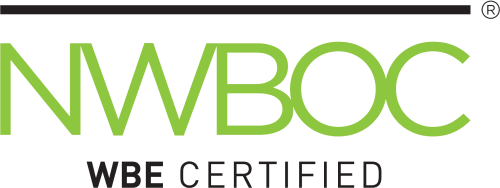New Eagle Hill Consulting research finds more than half of government employees prefer working for an agency that provides flexibility for remote work

68 percent of government employees say they haven’t been asked for input on remote work
Most government employees say remote work improves agency culture
Arlington, Va., August 8, 2024 – Fifty-six percent of government employees say they prefer working for an agency that provides flexibility related to remote and hybrid work, according to a new nationwide survey from Eagle Hill Consulting. Nearly half of government employees (46 percent) indicate they would consider looking for a new job should their employer reduce remote and hybrid work flexibility, highest among Gen Z workers (64 percent).
Only 32 percent of government employees say their employer has solicited their input on what remote and hybrid work flexibility options they would prefer, while 68 percent say remote work improves agency culture. Government employees say their top concerns about more in-person work include work-life balance (48 percent), commute time (45 percent), increased costs (43 percent), stress (36 percent), office distractions (26 percent), and their happiness (24 percent).
This research comes as some policymakers at the federal, state, and local levels are pushing for increased in-person work, while some jurisdictions are leveraging flexible work arrangements to recruit and retain workers as many agencies struggle with staffing.
Read the research infographic, “Government Employees Share Benefits and Burdens of Returning to Office,” detailing the research findings.
“Many government agencies have been treading carefully when it comes to altering their remote and hybrid work policies,” said Melissa Jezior, president and chief executive officer of Eagle Hill Consulting. “Government leaders have seen firsthand that offering workplace flexibility can provide real advantages for employee recruitment, retention, morale, and work-life balance. It’s important to note that even though they want remote work options, government employees know that in-person work has advantages and can help with career advancement.”
“One alarming finding from our research is that most government employees reported that no one has asked their views about remote work. Having a strong understanding of worker sentiment across an agency is critically important for leaders to make strategic, informed policy decisions. Of course, employee preferences won’t drive all agency decisions, but not having a full grasp of worker views is never a good idea,” Jezior said.
The nationwide survey of government employees also finds that these workers see the value of in-person work. More than half of government employees (54 percent) say those who work more in the office than remotely are more likely to be successful in their jobs. Eighty-eight percent of government workers say integrating new team members is managed better in person, as is team building (87 percent), onboarding (78 percent), managing teams (77 percent), kicking off a new project (76 percent), getting a project back on track (75 percent), training (74 percent), performance discussions (72 percent), brainstorming (62 percent), meetings (61 percent), giving and receiving feedback (61 percent), IT support (58 percent), and classified work (56 percent).
The research also finds:
- Government employees say the benefits of returning to the workplace would include increased socialization (47 percent), the ability to leave work at work (35 percent), improved collaboration (34 percent), and more productivity (29 percent).
- Agency workers are split on employers tracking their attendance to ensure compliance with remote work policies. Forty-nine percent want their attendance tracked, while 51 percent don’t.
- Thirty-nine percent of government employees are willing to sacrifice a dedicated workspace in exchange for more remote work. Only 14 percent would sacrifice pay for increased remote work.
- Sixty-six percent of government employees say someone they work with directly makes their remote work flexibility decisions.
These findings are based upon the 2024 Eagle Hill Consulting Workplace Flexibility Survey conducted by Ipsos most recently from June 4-7, 2024. The survey included 1,453 respondents from a random sample of employees across the U.S. including 570 federal, state, and local government workers. Respondents were polled about their views about working remotely.
Eagle Hill Consulting LLC is a woman-owned business that provides unconventional management consulting services in the areas of Strategy, Performance, Talent, and Change. The company’s expertise in delivering innovative solutions to unique challenges spans across the private, public, and nonprofit sectors. A leading authority on employee sentiment, Eagle Hill is headquartered in the Washington, D.C. metropolitan area, with employees across the U.S. and offices in Boston and Seattle. More information is available at www.eaglehillconsulting.com.
Media Contact: Susan Nealon | 703.229.8600 | snealon@eaglehillconsulting.com | @WeAreEagleHill

